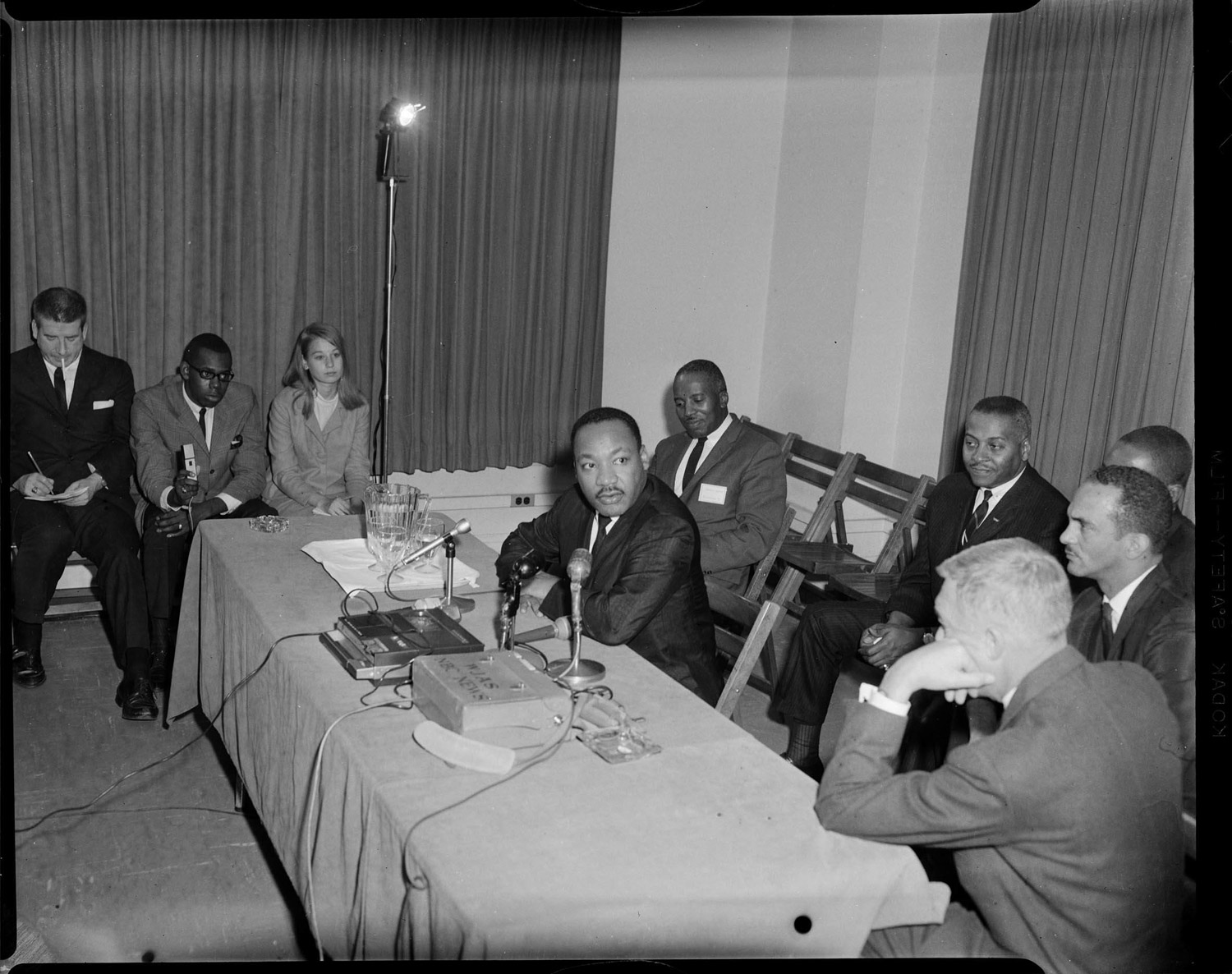
Watch many photographers today working on digital SLRs and you’ll see them shoot, pull the camera down to peek in the digital screen to check the image, then repeat. This action has become known as chimping, and old salts will say that it betrays the photographer as an amateur, because back in the days of film, once you took a photo, that was what you had.
But in the days of film, especially in a controlled setting, photographers often made redundant shots to make sure they captured what they wanted. Not Charles “Teenie” Harris. A native of Pittsburgh’s Hill District, the city’s cultural center of African-American life, Harris was a semi-pro athlete and a numbers runner before he bought his first camera in the 1930s. He opened a photography studio and specialized in glamour portraits, earning the nickname “One Shot” because he rarely made his subjects sit for a second take. Nearly 80 years later, a retrospective of the photographer’s work is on view at the Carnegie Museum of Art.
“One Shot” Harris freelanced for the Pittsburgh Courier, chronicling the life of black neighborhoods throughout the city. In 1953, he closed his portrait studio, and for the next 20 years, he captured the late Jim Crow and Civil Rights eras, photographing Louis Armstrong, Duke Ellington, Ray Charles, Sam Cooke, Muhammad Ali, John F. Kennedy, Dwight Eisenhower and dozens of others who shaped the late 20th century. But Harris is most remembered for his images of daily life—urban landscapes, social gatherings, musical performances and sports from boxing to Negro League baseball. He captured the vibrant times and slow death of the Crawford Grill, perhaps the most famous jazz club in the Hill District.
Harris made more than 80,000 images in his career, nearly 60,000 of which have been scanned and catalogued by the Carnegie Museum of Art. The Museum maintains a searchable archive online and a retrospective exhibition of Harris’ work will run until April 7, allowing visitors to see an era and a place captured one single shot at a time.
Teenie Harris, Photographer is on view at the Carnegie Museum of Art in Pittsburgh through April 7.















More Must-Reads From TIME
- The 100 Most Influential People of 2024
- Coco Gauff Is Playing for Herself Now
- Scenes From Pro-Palestinian Encampments Across U.S. Universities
- 6 Compliments That Land Every Time
- If You're Dating Right Now , You're Brave: Column
- The AI That Could Heal a Divided Internet
- Fallout Is a Brilliant Model for the Future of Video Game Adaptations
- Want Weekly Recs on What to Watch, Read, and More? Sign Up for Worth Your Time
Contact us at letters@time.com